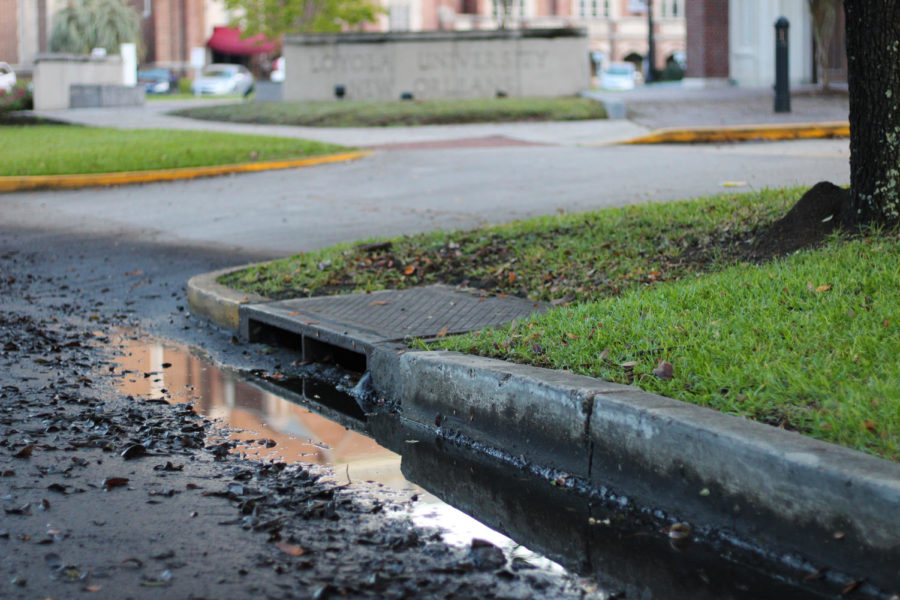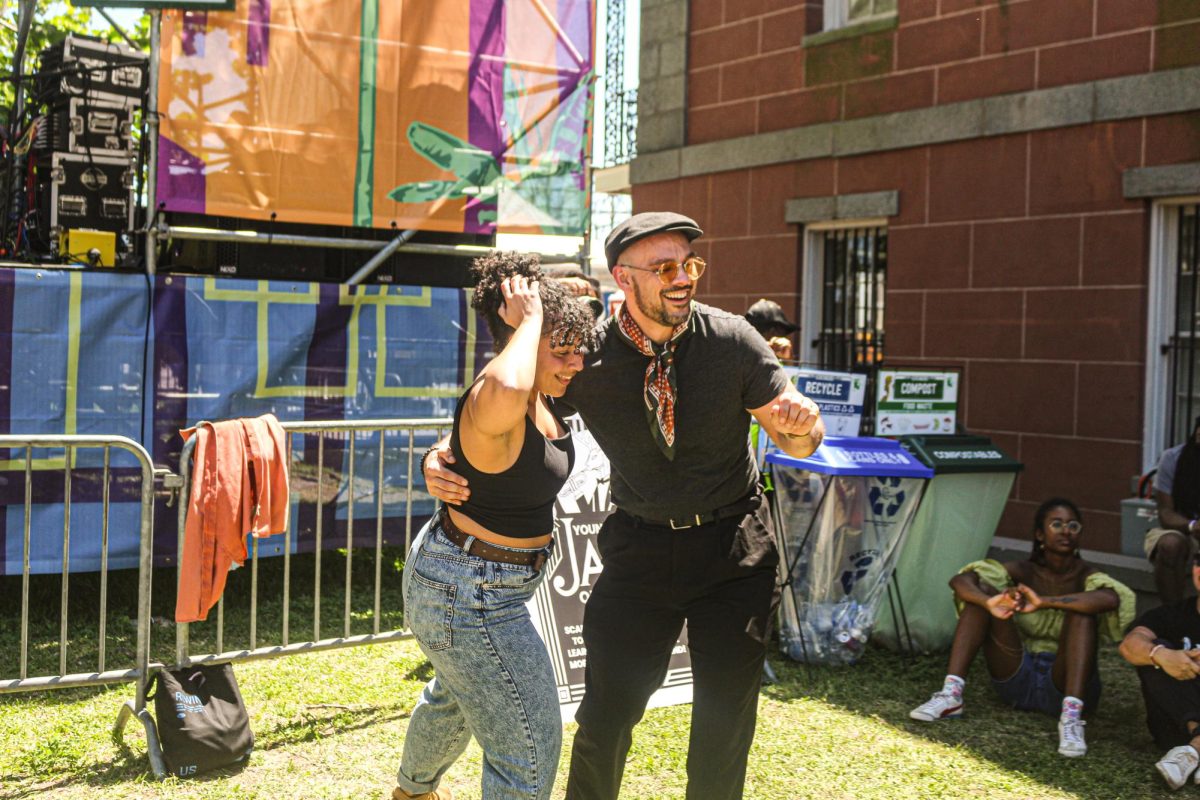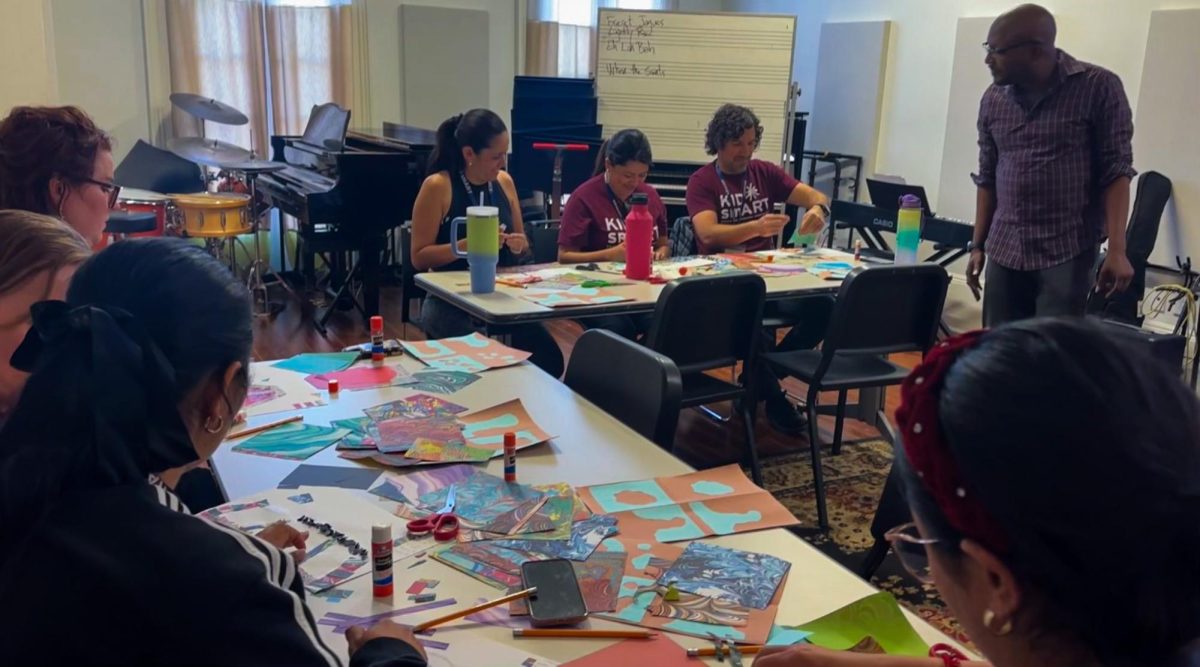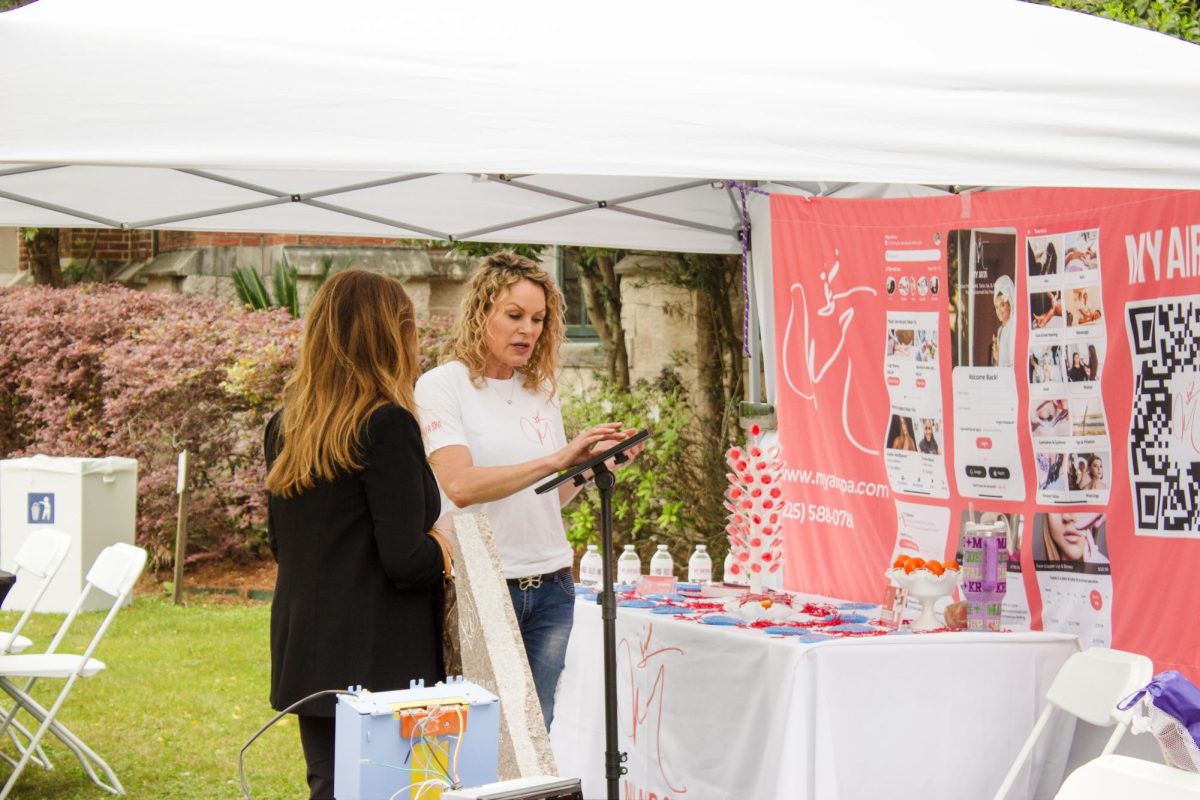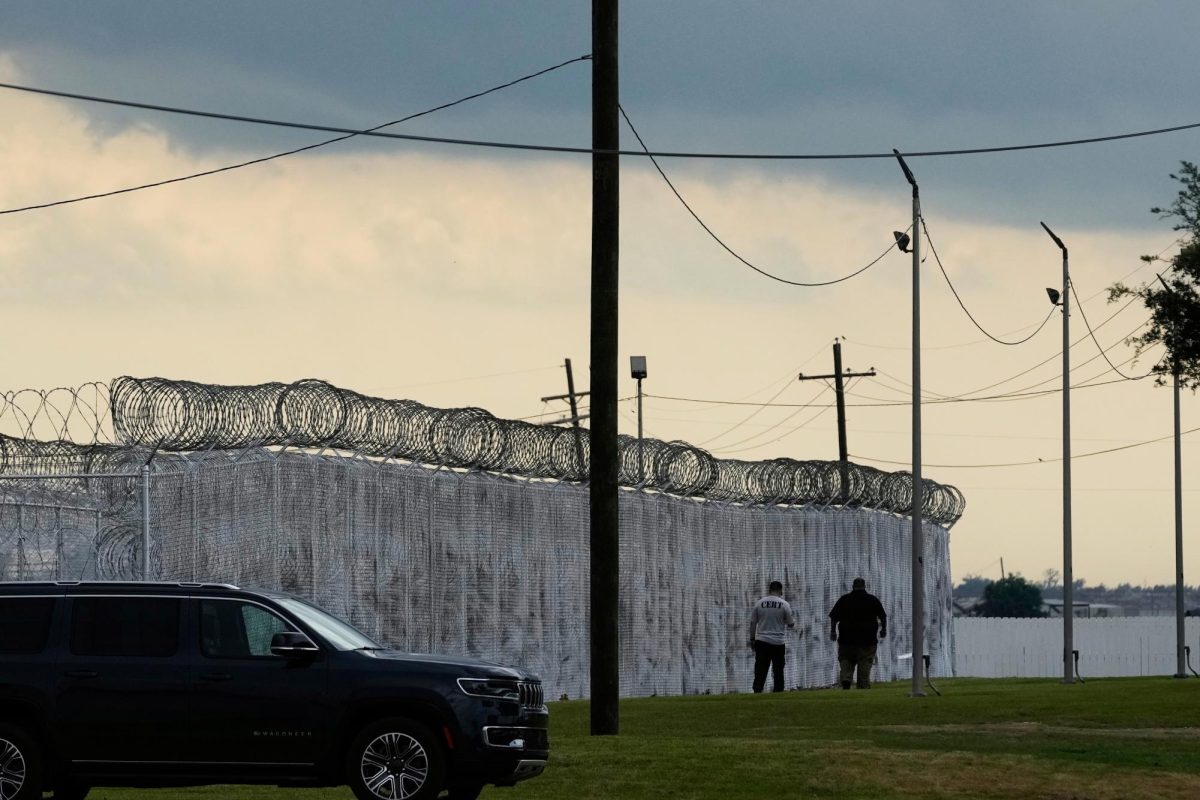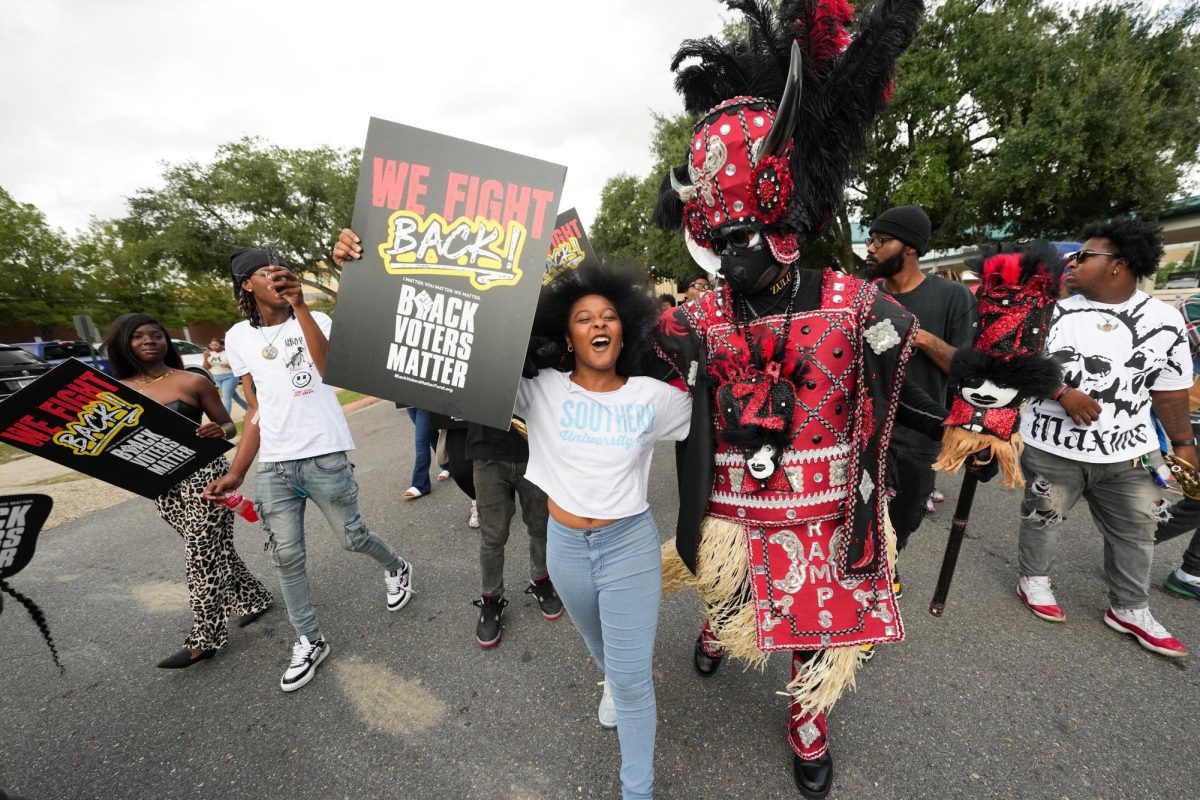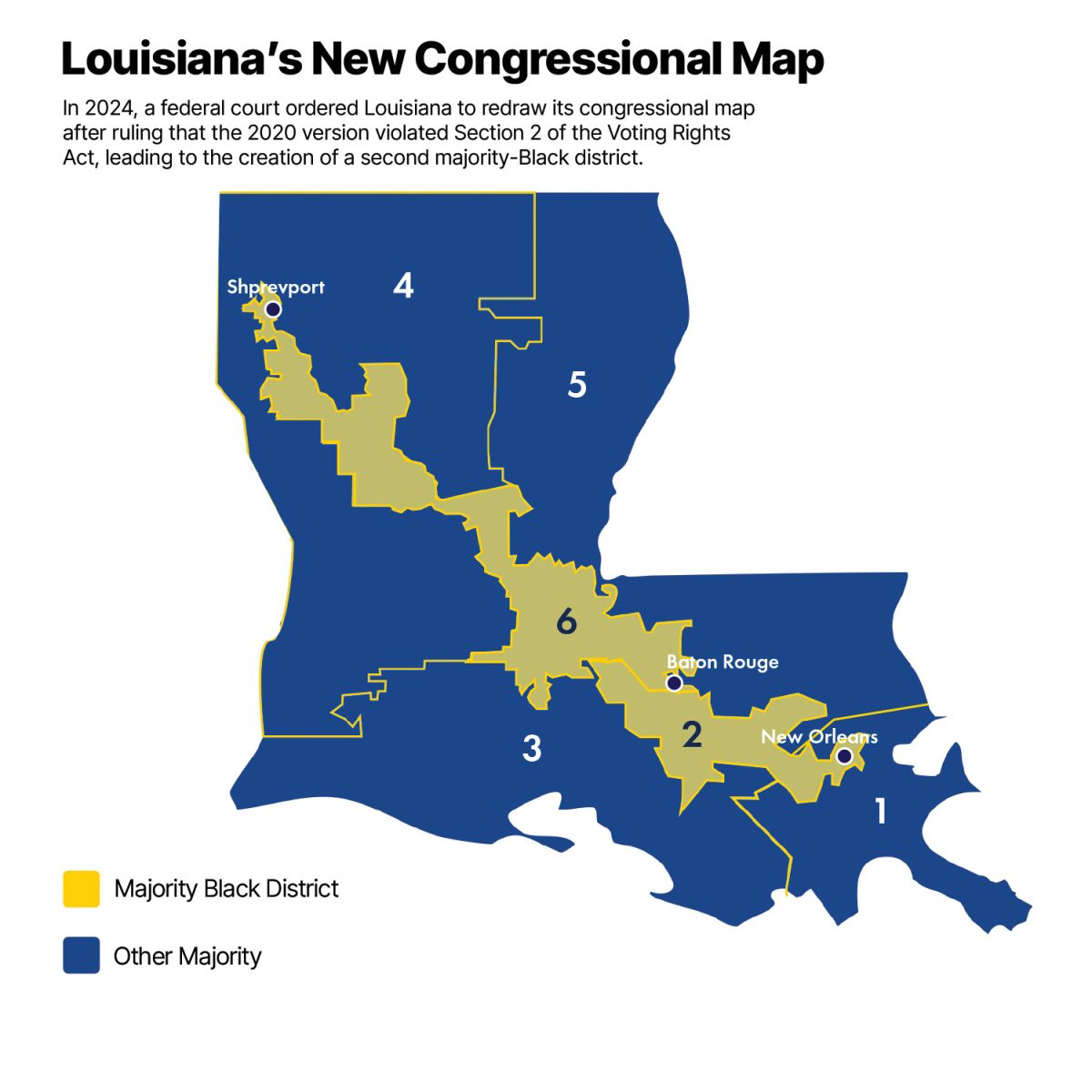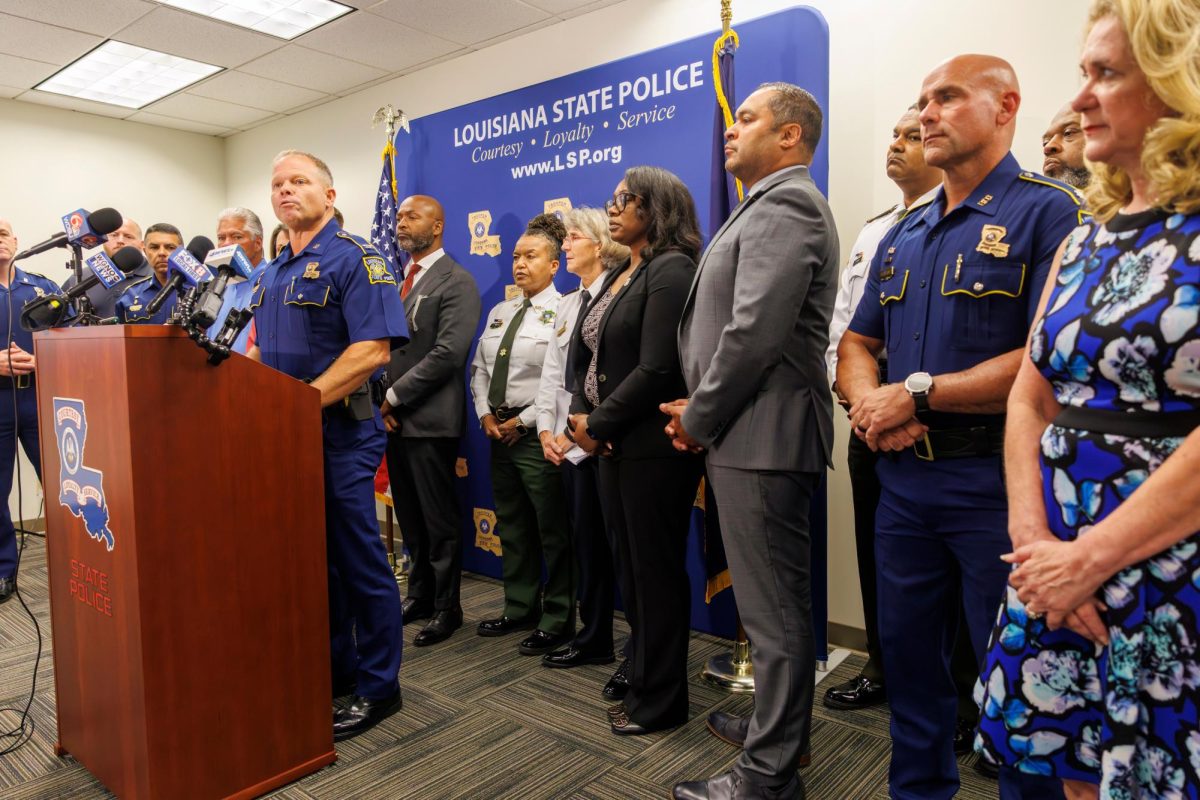In the peak of hurricane season, flooding in New Orleans can become dangerous. As the city struggles to mobilize resources, efforts to solve the problem have fallen to the New Orleans community.
Mayor LaToya Cantrell took to Twitter earlier this month to announce the launch of the Catch Basin Pilot Program, a new public works program intended to involve the community in an effort to clean up the streets and aid the city in repairing infrastructure problems.
Kelly Whitaker, Loyola law student and president of the Loyola Environmental Law Society, took immediate notice of a new city-wide program aimed at alleviating the failing city infrastructure and encouraged her organization to take part on Sept. 14.
“We should applaud local governments when they implement creative solutions to problems they have been unable to solve in a more streamline manner,” said Whitaker. “Being a member of a strong community means participating in activities that benefit that community if you are capable.”
The launch of the program comes in wake of National Preparedness Month and the launch of CleanUpNOLA, a Cantrell-led initiative to use multiple city departments and community involvement to repair 12 major corridors across the city.
“Working with all of these participating departments as well as the community, the program will confront and transform the culture of littering in our city,” said Cantrell in a statement released.
The Catch Basin Pilot Program was launched online earlier this month. The website allows members of the community to go online and adopt catch basins. By adopting the catch basin, community members are asked to consistently monitor the status of the basin and report via an interactive map of the city.
There are 68,092 catch basins in the city of New Orleans, according to the city Department of Public Works. The city budget only allows for 3,500 basins to be cleaned each year.
Whitaker is confident that the new program can help assist against flooding, but doesn’t believe it is the city’s big answer to infrastructure problems. More importantly, it provides community members a way to help out with an issue that has constantly plagued the city.
“The reality is climate change are producing storms that are bigger and more frequent. This program does nothing to alleviate that. In stronger terms, it is a band-aid. However, for our citizens who have experienced being trapped at work or lost their home due to flooding from even a minor storm, this program can help immensely,” said Whitaker.
The city has always encouraged community involvement in an effort to clean catch basins, having previously hosted dozens of catch basin cleaning events. However, this new pilot program hopes to reach directly to individuals and groups in the city community and encourages their regular involvement in maintaining city infrastructure.
Catch basins are typically associated with failing infrastructure and flooding, but few people are aware of the environmental health hazards that they can pose.
“When trash enters our catch basin, it causes damage to the health of our water, in turn affecting the health of us and our marine life. Last year, 93,000 pounds of Mardi Gras beads were found in the basins, along with tons of other trash,” said Whitaker. “What this program is really about is holding ourselves accountable and answering the call to assist others to maintain the integrity of our water.”


